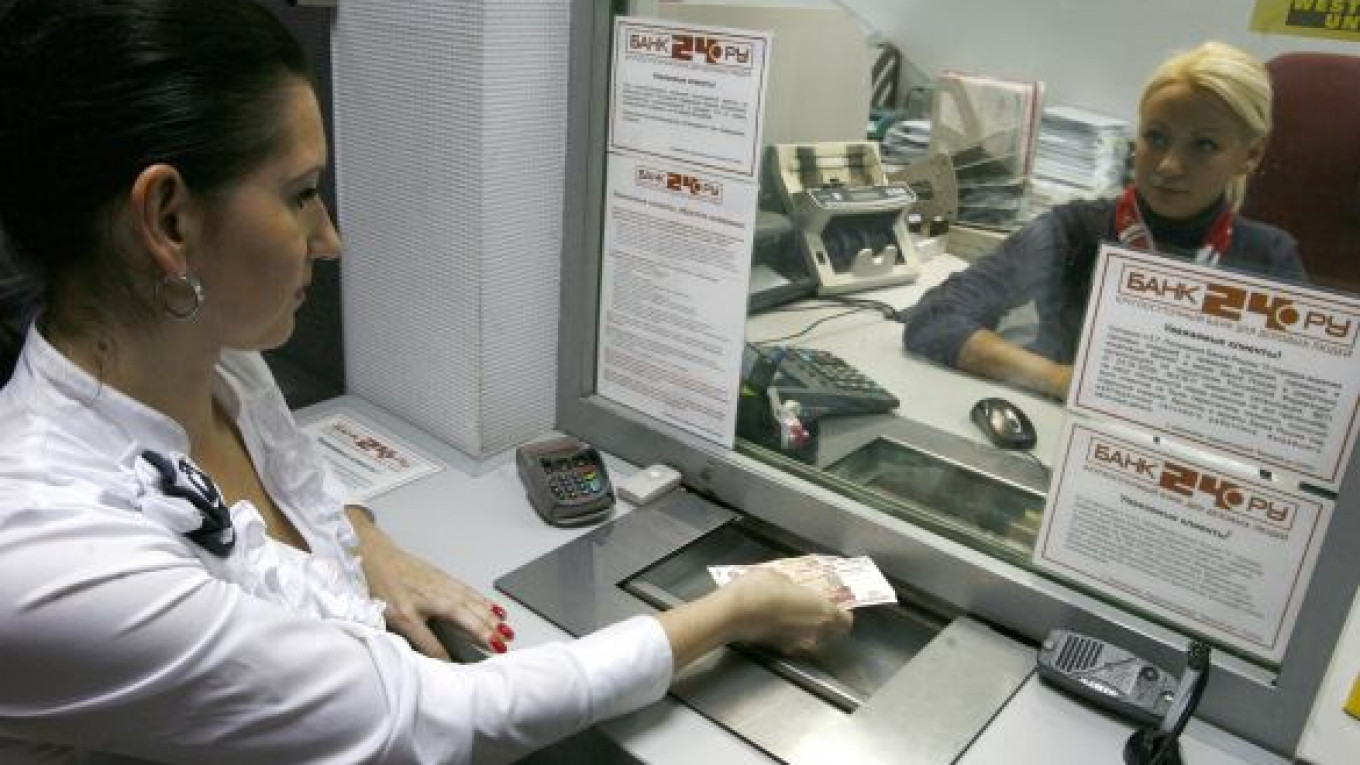In the next few years, banks will be faced with shrinking revenue and widening competition that will make their use of mobile and social-networking technologies critical to their success — or a factor in their failure, a major consulting firm is predicting.
An executive with Marketvisio, a Northern European firm that handles work for U.S.-based Gartner in Russia, said in a Thursday presentation that the banking sector here will need to adapt swiftly over the next five to 10 years as the profit base gets smaller.
A decade from now, a typical bank's revenue will be half of what it is now, and competition will be tightened, said Eija Holmstrom, Marketvisio's head of consulting.
"Do you think your bank will survive? That's a challenge," she said.
It will be vital for banks to come up with IT strategies — including ones for creating on-the-go banking products and reaching customers through social networking — for them to withstand the changing market, Holmstrom said.
"Otherwise, your bank will be dead, acquired or — if you manage — perhaps flourishing, either becoming bigger or becoming the leading specialist in some area," she said.
That outlook is based on the chain of developments in her native Finland. The numbers of Finnish bank branches and employees halved over the past 20 years, as Internet and mobile use exploded. In addition, banks worldwide now have a more difficult time squeezing money out of their customers.
"You have to go to the transaction business and collect money from cents and half-cents," she said, and "this is not possible without a very, very efficient IT infrastructure."
What's more, as the customer profile changes, with the next generation expecting "extreme personalization" and spending lots of time in online social networks, banks should look to mobile, Internet and social-networking applications as ways to retain customers and maximize profit.
Some banks are already going this route. State-owned behemoth Sberbank has a Facebook application that is averaging 800 users per month. It also has a Facebook page with an active feed of Sberbank news and comments. In another example, mid-size institution Avangard Bank offers Internet-based bank accounts, which customers can use to pay utility bills.
Holmstrom, speaking at an event for small and midsize banks, recommended that they generate web- and mobile-related strategies to remain competitive.
When it comes to IT upgrades and products, perhaps "you can't afford to be the first, but make sure you are not the last," she said.
Keeping pace with market leaders is necessary so that "people don't de-select you because you are inconvenient, old-fashioned, slow and expensive," Holmstrom said.
The Wednesday event was organized by SAP. The German business systems provider and its counterparts, such as U.S. company Oracle, offer IT systems for banks, as do software development firms.
A Message from The Moscow Times:
Dear readers,
We are facing unprecedented challenges. Russia's Prosecutor General's Office has designated The Moscow Times as an "undesirable" organization, criminalizing our work and putting our staff at risk of prosecution. This follows our earlier unjust labeling as a "foreign agent."
These actions are direct attempts to silence independent journalism in Russia. The authorities claim our work "discredits the decisions of the Russian leadership." We see things differently: we strive to provide accurate, unbiased reporting on Russia.
We, the journalists of The Moscow Times, refuse to be silenced. But to continue our work, we need your help.
Your support, no matter how small, makes a world of difference. If you can, please support us monthly starting from just $2. It's quick to set up, and every contribution makes a significant impact.
By supporting The Moscow Times, you're defending open, independent journalism in the face of repression. Thank you for standing with us.
Remind me later.






